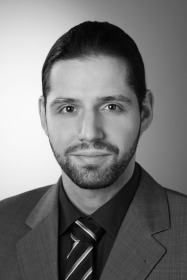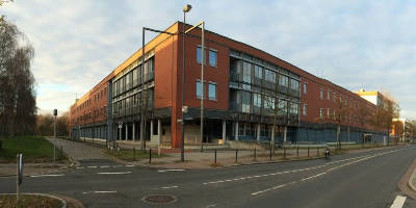← students

| First name: | Matthias |
| Last name: | Winkel |
| Country: | Germany |

Thesis Subject:Chemotrophic microorganims in marine hydrothermal systems
| Education: | |
| since January 2010
Ph.D. Student, Department of Molecular Ecology, Max Planck Institute for Marine Microbiology, Bremen |
|
| since 2010 Student of the International Max Planck Research School of Marine Microbiology (MarMic), Max Planck Institute for Marine Microbiology, Bremen | |
| 2009 Diploma Thesis: "Nitrifiying microorganisms in the hydrothermal system, Guaymas Basin", Department of Molecular Ecology, Max Planck Institute for Marine Microbiology, Bremen | |
| 2008 Student Project; "In situ detection of aquatic Verrucomicrobia", Department of Molecular Ecology, Max Planck Institute for Marine Microbiology, Bremen | |
| 2007 Study abroad, University of Bergen, Norway | |
| 2003-2009 Diploma in Marine Biology, University of Bremen, Germany |
Scientific Interests and Goals:Chemotrophic processes are dominant in hydrothermal systems and produce a basis for the food web. Energy from the geosphere is converted into bioavailable energy by microorganisms which function as primary producers. Over the last three decades microorganisms inhabiting these systems have been studied intensively. So far not much is known about in situ activity of most of the populations.
In my thesis I studied three different hydrothermal systems, one which is sediment covered whereas the other two are rock-hosted. I investigated chemoautotrophic and chemoheterotrophic populations with different molecular and biogeochemical techniques to analyse these processes.
We studied the nitrification in the sediment covered hydrothermal system of the Guaymas Basin. Quantitative polymerase chain reaction and functional gene analysis showed a diverse and abundant archaeal ammonia oxidizing population. Nitrification rate measurements identified Beggiatoa mats as hotspots for aerobic nitrification.
At the basalt-hosted hydrothermal system Menez Gwen on the Mid Atlantic Ridge, we investigated chemoautotrophic and chemoheterotrophic populations with stable isotopic labeled substrates. Catalyzed Reporter Deposition Fluorescence in situ hybridisation (CARD-FISH) of diffuse fluids showed an enrichment of Epsilonproteobacteria falling into a distinct uncultured cluster, which might represent a new genus of aerobic heterotrophic Nautiliaceae. Nanoscale Secondary Ion Mass Spectrometry (Nano-SIMS) reveals a high in cooperation of 13C-acetate and 15N-ammonia and points towards a heterotrophic metabolism.
As a follow project of my diploma thesis we have amplified the single genome of a large filamentous sulfur oxidizing bacterium Candidatus Thiomargarita nelsonii. Sequencing the genome with an illumine paired-end library at JGI resulted in a draft genome which covers approximately 50% of the whole genome. First comparison with other large filamentous sulfur-oxidizing bacteria shows that they share a substantial number of genes with filamentous multicellular cyanobacteria and have the genetical potential for hydrogen oxidation and denitrification.
In my thesis I studied three different hydrothermal systems, one which is sediment covered whereas the other two are rock-hosted. I investigated chemoautotrophic and chemoheterotrophic populations with different molecular and biogeochemical techniques to analyse these processes.
We studied the nitrification in the sediment covered hydrothermal system of the Guaymas Basin. Quantitative polymerase chain reaction and functional gene analysis showed a diverse and abundant archaeal ammonia oxidizing population. Nitrification rate measurements identified Beggiatoa mats as hotspots for aerobic nitrification.
At the basalt-hosted hydrothermal system Menez Gwen on the Mid Atlantic Ridge, we investigated chemoautotrophic and chemoheterotrophic populations with stable isotopic labeled substrates. Catalyzed Reporter Deposition Fluorescence in situ hybridisation (CARD-FISH) of diffuse fluids showed an enrichment of Epsilonproteobacteria falling into a distinct uncultured cluster, which might represent a new genus of aerobic heterotrophic Nautiliaceae. Nanoscale Secondary Ion Mass Spectrometry (Nano-SIMS) reveals a high in cooperation of 13C-acetate and 15N-ammonia and points towards a heterotrophic metabolism.
As a follow project of my diploma thesis we have amplified the single genome of a large filamentous sulfur oxidizing bacterium Candidatus Thiomargarita nelsonii. Sequencing the genome with an illumine paired-end library at JGI resulted in a draft genome which covers approximately 50% of the whole genome. First comparison with other large filamentous sulfur-oxidizing bacteria shows that they share a substantial number of genes with filamentous multicellular cyanobacteria and have the genetical potential for hydrogen oxidation and denitrification.
Selected Publications:Arnds, J.; Knittel, K.; Buck, U.; Winkel, M. and Amann, R. (2010); “Development of a 16S rRNA-targeted probe set for Verrucomicrobia and its application for fluorescence in situ hybridization in a humic lake.” Syst Appl Microbiol. 33(3):139-48.
Mußmann, M.; Ribot, M.; von Schiller, D.; Merbt, S. N.; Augspurger, C.; Karwautz, C.; Winkel, M.; Battin, T. J.; Martí, E and Daims H.; (2013) “Colonization of freshwater biofilms by nitrifying bacteria from activated sludge.” FEMS Microbial Ecology (Ahead of print)
Winkel, M.; de Beer, D.; Lavik, G.; Peplies; J. and Mußmann, M.; „Nitrification in Beggiatoa mats covering deep-sea hydrothermal sediments.” (Submitted to Environmental Microbiology)
Winkel, M.; Pjevac, P., Kleiner, M., Meyerdierks, A. and Mußmann M. „Evidence for acetate-consuming microorganisms in diffuse fluids at two hydrothermal systems” (In prep.)
Mußmann, M.; Ribot, M.; von Schiller, D.; Merbt, S. N.; Augspurger, C.; Karwautz, C.; Winkel, M.; Battin, T. J.; Martí, E and Daims H.; (2013) “Colonization of freshwater biofilms by nitrifying bacteria from activated sludge.” FEMS Microbial Ecology (Ahead of print)
Winkel, M.; de Beer, D.; Lavik, G.; Peplies; J. and Mußmann, M.; „Nitrification in Beggiatoa mats covering deep-sea hydrothermal sediments.” (Submitted to Environmental Microbiology)
Winkel, M.; Pjevac, P., Kleiner, M., Meyerdierks, A. and Mußmann M. „Evidence for acetate-consuming microorganisms in diffuse fluids at two hydrothermal systems” (In prep.)


